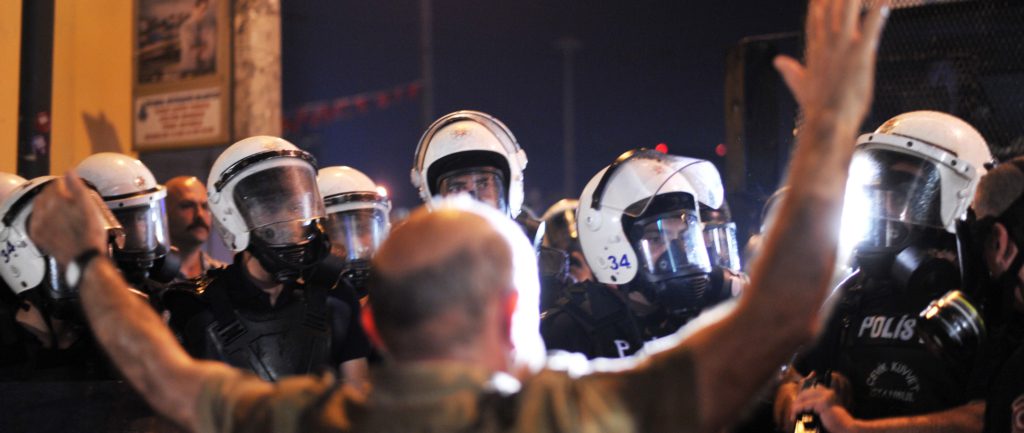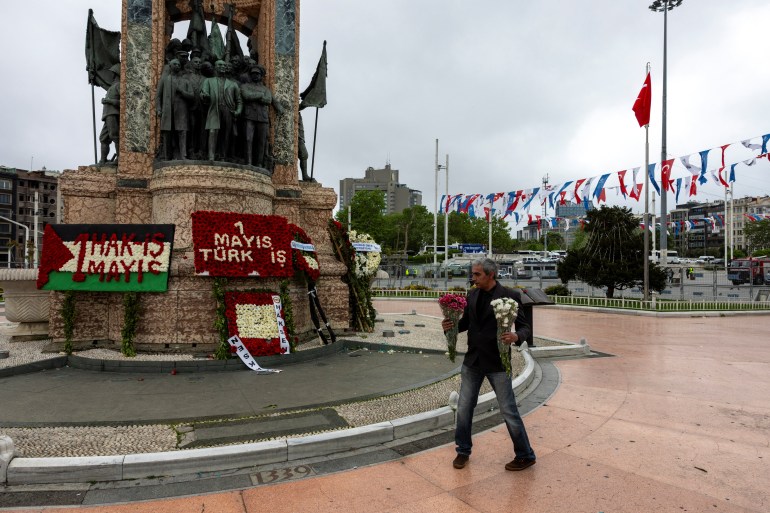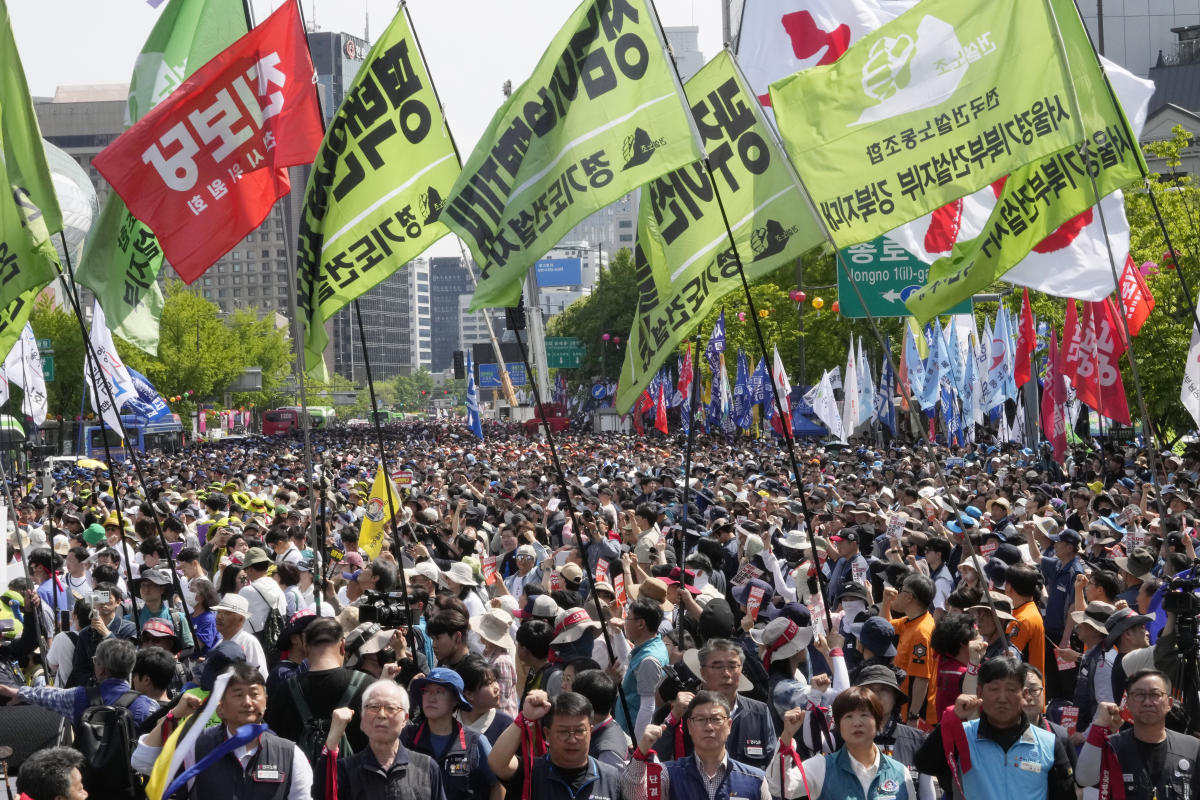
May Day, also known as Labor Day, was celebrated around the world on May 1, 20XX with various protests and demonstrations demanding better wages, working conditions, and labor rights. In Istanbul's Taksim Square, thousands of people attempted to gather despite a ban imposed by the Turkish authorities. The square has historical significance as it has been a traditional rallying point for May Day celebrations since the 1970s. However, the Turkish government banned rallies in Taksim Square due to security concerns and fears of potential terrorist attacks. This led to clashes between protesters and police, resulting in over 210 arrests.
In Greece, several thousand protesters disrupted public transport and national rail services in Athens, demanding a return to collective bargaining rights. Thousands of workers marched through Paris seeking better pay and working conditions. Some even set Olympic rings on fire to express their discontent with the upcoming Summer Games.
Pro-Palestinian demonstrators joined May Day events in various countries including South Africa, Kenya, Iraq, and Lebanon. In Lebanon, protesters demanded an end to the economic crisis and called for solidarity with Palestine. Workers in Indonesia demanded protections for migrant workers abroad and a minimum wage raise.
In South Korea's capital city of Seoul, thousands of protesters criticized anti-labor policies and called for better wages and working conditions. President Yoon Suk Yeol faced criticism from labor unions over his conservative government's stance on labor rights.
The May Day protests were not limited to workers alone. Students also participated in various demonstrations, expressing their dissatisfaction with the current political climate and demanding change.
Despite the widespread protests, some governments responded with force. In Istanbul, police used tear gas and rubber bullets to disperse protesters attempting to reach Taksim Square. In Paris, police clashed with demonstrators who set Olympic rings on fire during a labor rally.
The May Day protests serve as a reminder of the ongoing struggle for workers' rights and the need for governments to address their concerns. The historical significance of May Day as a symbol of labor solidarity continues to resonate with people around the world.



